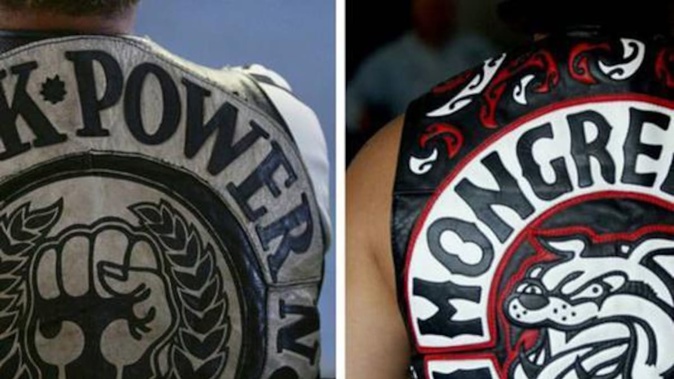
Government Ministers are being accused of deliberately dodging consultation on a new power that would allow courts to ban gang patches in the home.
Expected to pass its third reading in the House this month, the Gangs Bill involves giving police new tools to crack down on gangs - including the power to disperse gatherings and ban patches in public.
But a clause added to the Bill in August - a month after the Justice Select Committee report was tabled - would require a court to issue a mandatory gang insignia prohibition order for repeat offenders, banning it from being present at the person's "usual place of residence".
A person convicted of publicly displaying gang insignia three times in five years would be banned from possessing or controlling insignia for five years, making it illegal for them to have it in their home.
A Ministerial briefing released under the Official Information Act, shows options for an escalating penalty regime - including a possession ban order, and bespoke search powers - were presented by Police to Minister Mark Mitchell in March.
Labour’s Police spokesperson Ginny Andersen says given options were being discussed in March, there is no good reason why the change was not put through the Select Committee process.
"It seems they're hell-bent on pushing this through quickly without proper consultation, and that really compromises democracy,” she said.
Justice Minister Paul Goldsmith confirms the decision to amend the bill was made by Cabinet, after the select committee process – where interested parties could submit on the legislation – had closed.
Goldsmith said the Government makes no apologies for getting tough on gangs.
But Convenor of the Law Society’s Criminal Law Committee Chris Macklin said it was "alarming" that a power with such broad consequences was introduced after the Select Committee process - meaning organisations, experts and the public could not have their say.
"This amendment came so far after the consultation process, and so close to what would be the Bill's third reading, that it's almost like it's been railroaded," Macklin said.
“It's a substantial change: a state reach into a very private space, namely a person's home, and that's the kind of thing that you would expect to be only implemented with the utmost care.”
He said the fact options were canvassed in March makes it more unreasonable that the changes were introduced late.
"If it was being discussed in March by any group that was interested, whether the police or otherwise, and the Government intended to act upon it, then that should have been made apparent to those that were working on the bill, and those who were submitting on it."
An open letter from the Law Society to Goldsmith urged him to withdraw the amendment - calling it an "unjustified limitation on the right to freedom of expression," and "not rationally connected to the stated purpose” of the gang patch ban, which is to reduce public intimidation.
Goldsmith said the change ensures there are consequences for what the Government expects to be a small group of people, that repeatedly flout the gang patch law.
“There’s always a balancing act when it comes to moving with pace and allowing the public to have their say. This decision was made by Cabinet. I think it was justified.”
Labour's Justice spokesperson Duncan Webb said Ministers had every opportunity to go back to Select Committee with the amendment, or ask the Select Committee for more time.
"Given the Minister of Police had a comprehensive paper on this in March, there's a clear decision to circumvent the Select Committee process and not consult."
He says it's extraordinary to put an offence provision into the bill at the end of the legislative process.
“There's nothing like it in New Zealand, nothing like it in Australia, and to put that in Parliament without notice - it's just a real breach of good Parliamentary practice."
Official briefings from late March showed police were concerned about enforcement of the gang patch ban, including the risk of continual defiance by a person who wasn't deterred by the current penalties. The Police Association has also raised enforcement concerns.
The briefing stated the idea of an escalating penalty regime was raised as a possible solution to this risk.
"A number of options have been developed, with combinations of introducing a possession ban order on a third offence in five years (making it illegal for a person to possess gang insignia under any circumstances) with or without a related bespoke search power."
It noted the Ministry of Justice wanted the Bill to be left as it is, relying on police to enforce the gang insignia ban.
Labour's Ginny Andersen said concerns were raised in Select Committee about police enforcement, but potential solutions deserved to be heard alongside any other amendments.
Take your Radio, Podcasts and Music with you









